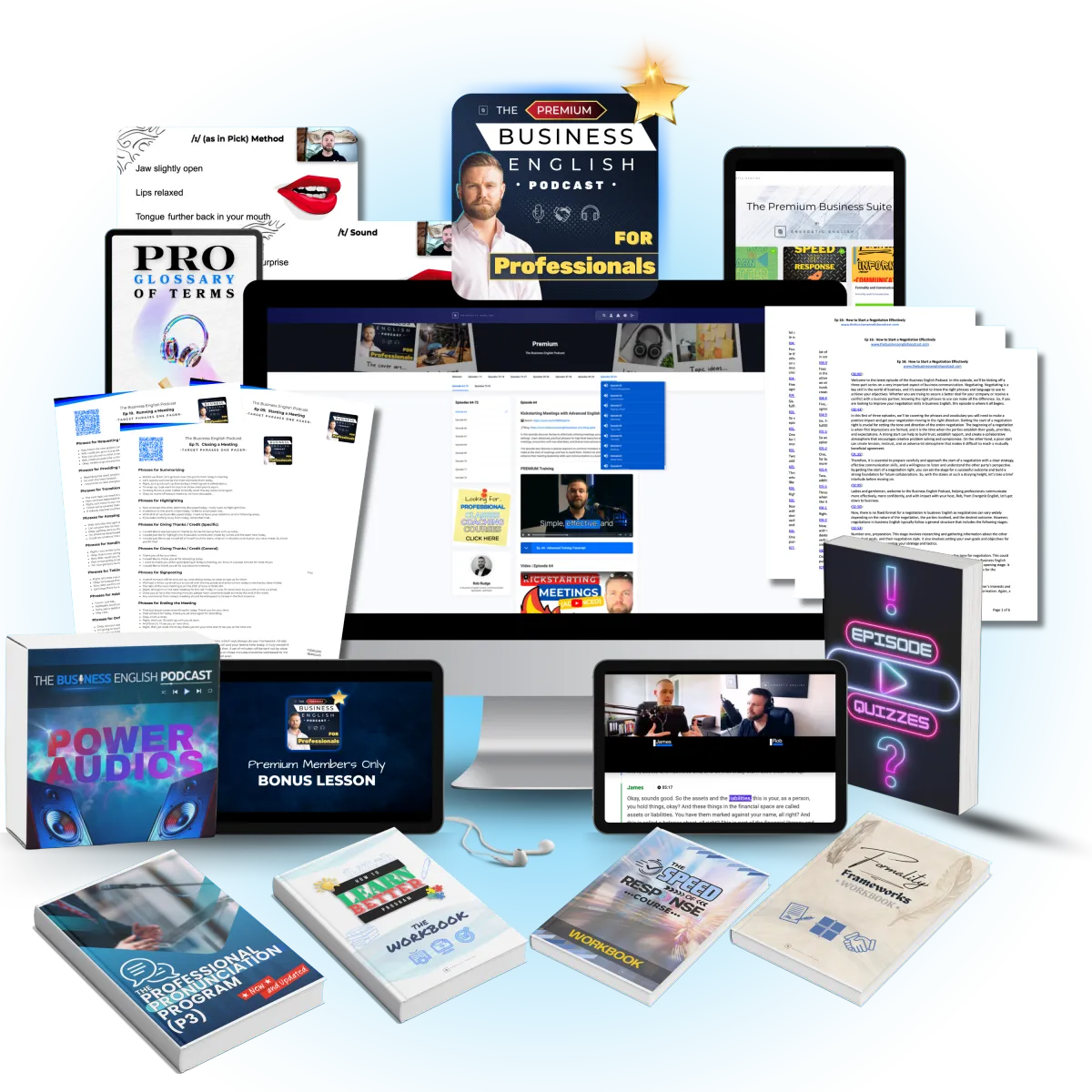Tiny Change - Huge Impact
Mastering Professional Modals
17 Jan 25
Tiny Change, Huge Impact: Mastering Professional Modals in Business English
Are you tired of hearing that your emails “lack a professional tone” or that your business conversations come off as too direct—or even abrupt?
If you’ve ever wondered how to refine your English so you sound more diplomatic, polished, and respected, this might be your turning point.
We often assume that achieving professional fluency is about an enormous overhaul—long hours, endless grammar drills, or racking up pricey language courses.
But what if there’s a tiny tweak that could spark a massive upgrade in how you come across at work?
Welcome to professional modals.
Why Modals Matter
Modal verbs—could, would, should, might, and more—are often overlooked by non-native speakers who rely heavily on “can” or “will” for everyday requests.
The result?
While the message is clear, the tone can sound harsh or too casual.
Here’s the big secret: modals allow you to fine-tune politeness, assertiveness, and respect.
They’re like the “volume knobs” of language—allowing you to raise or lower the intensity of your statement to fit each situation perfectly.
Quick Example:“Can you send me the file?” vs. “Could you send me the file?”The first sounds straightforward but might feel a bit abrupt in some contexts. The second is softer, more open, and often better suited for professional interactions.
Want to hear more nuanced examples and real-life scenarios?
We break it all down in our latest episode of The Business English Podcast—Tiny Change, Huge Impact: Mastering Professional Modals.
In it, you’ll learn exactly why modals are so essential and how to use them effectively to upgrade your communication, one word at a time.
The Gap Between Where You Are and Where You Want to Be
Right now, you might be feeling stuck in your current level of business English—good enough to get by, but not quite at that polished, authoritative, yet approachable tone you want.
Common Pain Points
Unintentionally abrupt emails: You send a quick request but sense you might be coming across as brusque.
Awkward meeting contributions: You want to propose ideas, but the phrasing often lands flat or, worse, offends someone.
Missed opportunities: You suspect you’re missing out on career growth because you can’t articulate your thoughts in a nuanced way.
Sound familiar? The difference between struggling to be heard and truly owning the room could hinge on mastering these subtle linguistic tools.
Could, would, should, and might might be small, but they pack a big punch in how people perceive you.
Tiny Tweaks That Make a Big Difference
Here are just a few examples from our latest podcast episode (you’ll find even more insights when you tune in):
Could I have your input on this?A great phrase when you want to invite feedback on a project or new idea. It’s inclusive and shows respect for others’ expertise.
Would you mind sending that report by noon?Instead of “Send the report by noon,” you’re transforming a command into a polite request, reinforcing rapport.
Should we consider adjusting the timeline?When you need to open a discussion about scheduling, “should” softens the suggestion and encourages collaboration.
Notice how these simple changes don’t alter the main message, but shift the tone significantly.
Whether you’re sending an email to a colleague, pitching a client, or participating in a team meeting, choosing the right modal can set the stage for constructive dialogue instead of conflict.
What You’ll Learn in the Latest Episode
In Tiny Change, Huge Impact: Mastering Professional Modals, we reveal:
A Real-Life NarrativeHear how Charlie, a brilliant analyst from Spain, navigates subtle language barriers in the high-pressure environment of a London consultancy.
Why Modals Are KeyUnderstand how these often-overlooked verbs can help you stand out, command respect, and convey genuine professionalism.
Step-by-Step GuidanceGet a breakdown of how to choose the right modal for your intended meaning—whether it’s a firm statement, a gentle request, or a strategic proposal.
Practical ExamplesDiscover quick-use phrases you can immediately apply in emails, meetings, or client negotiations.
Common Pitfalls to AvoidUncover why saying “can” too often might lead to misunderstandings and how failing to use “please” or “thank you” could undermine your best intentions.
Ready to Bridge the Gap?
If your current communication style isn’t getting you where you want to be—or you just know you can do better—let our podcast episode be your bridge to that more confident, polished version of yourself.
Listen Now to “Tiny Change, Huge Impact: Mastering Professional Modals” on The Business English Podcast.
Join BEP PREMIUM to go deeper into nuanced grammar tips and exclusive best practices for high-level communication.
Remember, it only takes a tiny shift in your language to see a huge difference in how colleagues, clients, and leaders respond to you.
Final Thoughts
Professional modals are the unsung heroes of high-level communication.
Once you understand their power, you’ll start spotting countless ways to refine what you say and how you say it.
It’s not about losing your personality or sounding “fake”—it’s about building respect, cooperation, and trust in every professional exchange.
Take the first step by tuning into our latest episode, and let these tiny but mighty words transform your business English from passable to powerhouse.
Your career trajectory might just thank you.
Want More From The Show?
TRANSCRIPTS, PRONUNCIATION SUPPORT, ONE-PAGE PDFs, QUIZZES...?

© Copyrights by The Business English Podcast. All Rights Reserved. | Terms & Conditions | Privacy Policy
